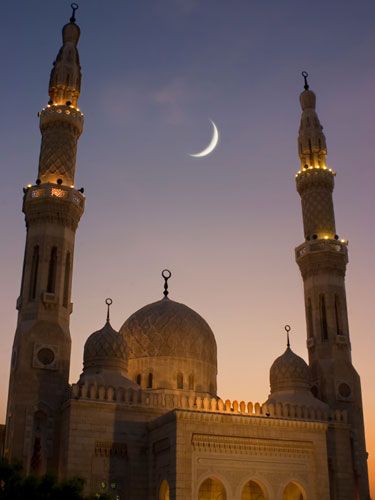Religion as Therapy
In these hard economic times, we could all use a little faith. Meet four modern career gals who found answers in that old-time religion.

The Recovering Catholic
By Lauren Iannotti
I grew up attending a working-class Roman Catholic church in New England. We were hard-core — everything literal, like the jihadists. And as a would-be shoe bomber might, I accepted church teachings as unquestionable Truth. All other versions were knockoffs; you were Catholic or you were hell-bound. Or — as was my case — you were both. A little matter of taking the Lord's name in vain. Oh, and that whole sex-before-marriage problem.
During my semester abroad in France, I decided to jaunt over to HQ in Rome. Leaning on the railing outside the dome of St. Peter's Basilica, I took in the pristine Vatican gardens and considered the cost of keeping the place polished to a sparkling shine. I imagined the Pope, wrapping his infallible frame in a cashmere blanket at night, laying his head on a gilt-trimmed pillow. Then I thought about the parishioners back at Holy Angels, who turned over a chunk of their weekly take-home to ensure that J.P. II could maintain the lifestyle to which he'd grown accustomed. Didn't add up.
Back in France, over tea at a quiet café, I told my pagan (OK, Protestant) Norwegian boyfriend that I was confused. I'd always believed that the church was Good and I was Evil. He asked why — had I stolen from orphans? Killed someone for fun? I'd had sex, I said (as if he didn't know). "Why would you go to hell for having sex?!" he raised his voice, and up with it went a few French eyebrows. "There are a lot of churches," he said, quieter. "And I don't think you've chosen the right one for you." Chosen? I have a choice? I can leave?
So I did. All it took was a little questioning, and the spool came unraveled. Soon enough, I'd changed my classification to "agnostic/recovering Catholic." Abandoned my odd attempts at bedtime prayers. Stopped feeling guilty for enjoying a good hookup. Good-bye, eternal fires. Hello, happiness. I suddenly saw the world in color.
Fast-forward to age 29. My husband and I had been married for such a short time, we hadn't even cashed in all of our Crate & Barrel gift cards — but it wasn't working. Our apartment teemed with the collective disgust we felt, not for each other, but for the life we'd forced ourselves into, and I knew it wouldn't be long before the place caved under it. So one Sunday morning, I did the only thing I could think of: I wandered into Mass at a Catholic church in our neighborhood. Shock No. 1: I didn't burst into flames upon crossing the threshold. I sat down and took in the hymns, which were exactly as I'd remembered — though the organ and old ladies' choir had been replaced by a hippie on a Gibson acoustic. Then the priest spoke: "I know you are lonely, but you are not alone. If you aren't having a tough time, look to your left and right: Your neighbor is. Take care of her." He wasn't talking about hellfires, about being perfect and without sin. He was just asking us to look after one another. I remembered how, when I was a kid, the church had girded me against uncertainty. And that's how I felt now: girded. It felt like home — one I knew could be misogynistic and inclined to protect the priest over the fifth-grader on whom he broke his vows. But at that moment, the church's sins felt as far away as Rome. And it was only with some creative blinking that I was able to hold back the tears (Shock No. 2).
Now I'm in the market for a new place of worship, because just as the marriage survived, so has my need to believe in something — clichéd as it sounds — bigger than myself. Amen to that.
Get exclusive access to fashion and beauty trends, hot-off-the-press celebrity news, and more.
NEXT PAGE: -->
The Budding Buddhist
By Whitney Joiner
The first time I walked into a Tibetan Buddhist meditation center on a Tuesday evening seven years ago, I was wary. I wasn't interested in religion or God — I've been an atheist my entire life — and I definitely wasn't interested in Hollywood-inspired enlightenment-seekers or 2500-year-old Indian stories that had nothing to do with my frenetic day-to-day life. What I was interested in was climbing out of the depressive hole I'd fallen into. I'd always battled anxiety, but a morass of troubles the previous year (the dot-com boom went bust; the company I worked for shuttered; the city I lived in was attacked by terrorists) had left me feeling insecure about the ground beneath me.
So I started reading about meditation. My roommate — a modern-art and space-rock fan who eschewed anything that vaguely resembled crystals or granola — had recommended the Shambhala Center, promising that it wasn't a close-knit Buddhist cult eager to foist elaborate rituals upon newcomers. And from the outside, the center was unassuming, located on the sixth floor of a plain building in Manhattan. But on the inside, the lack of subtlety made me uneasy. I sat barefoot on a floor cushion and looked around: photos of austere, unsmiling gurus; mysterious shrines; silk tapestries depicting dragons, lions, Tibetan deities; lots of red, orange, and yellow. What was all of this?
Those of us new to meditation were told to sit up straight, eyes directed to the floor, attention focused on the breath. (Of course you'll be thinking, the instructor said. The point is simply to be more aware of your thoughts.) Even though my mind raced too fast to focus on my breath at all, when I left the center, I was surprised: I'd just sat still for 30 minutes, without doing anything, while New York rushed home on the street below.
I came back the next Tuesday, and the next. My post-meditation calm and the sense of camaraderie—with other 20- and 30-somethings struggling with similar neuroses — inspired me to stick around for the Buddhist talks led by other longtime Shambhala students. They talked about dealing with life without freaking out, about not obsessing over your thoughts and feelings, about giving yourself — and those around you — a break. It made sense. And no one asked me to believe in anything; there was no God to impress or fear. No one cared whether I felt the teachings "worked" or not. If they're true for you, you take them.
I took them. After months of Tuesday nights, I signed up for a series of weekend programs. Could I meditate for six hours a day? Barely. It felt like slogging through mental boot camp, since there's nothing as boring as listening to your own internal chatter. But learning how to sit still and breathe, no matter what craziness my mind was spewing out, changed something in me, equipped me with a way to handle life with just a little more grace. I didn't magically stop feeling anxious or angry or depressed, but it was easier to catch myself when my mind started to spiral downward. I'd also found a community: We meditated together, talked dharma, threw dance parties, challenged and supported each other through job disappointments and breakups. And those complex shrines, which at first had seemed so alienating, became comforting markers of a spiritual ground that was starting to feel like home.
Then, two summers ago, I took the vows to formally become a Buddhist. On one hand, it was no big deal. Nothing magical happens, and some people study the dharma for life without making it official. But for me — with my profound discomfort in joining any spiritual group — I knew I was taking a leap, as if I were announcing to myself, "OK, I'm ready. Ready to walk this path."
NEXT PAGE: -->

Finding Allah in All the Right Places
By Shyema Azam
I'm sitting on the floor in a 4x4 fluorescent-lit dressing room at the Gap, a scarf covering my hair, my forehead momentarily touching the ground as I inaudibly recite my afternoon prayer. Suddenly, I hear a voice — and it's not God's: "Is everything OK in there?" It's the saleslady who's come to check up on me. Since I'm not technically supposed to interrupt my prayer by responding, I stay quiet. She quickly follows up with a knock. Nervous that she'll continue asking questions — or worse, unlock the door and see me prostrating — I clear my throat loudly enough to indicate that I'm still alive, then quicken my supplicating so I can get out of there without having to awkwardly explain that this was the most private place I could find to pray. I finish up, return the two shirts that I never intended to try on, and casually walk out the door.
As a moderate Muslim, born and raised in the U.S., I always try to get my prayers in five times a day. The Quran and hadith, which are sayings of the Prophet Muhammad, dictate that these prayers are done at designated times: dawn, noon, afternoon, sunset, and in the evening before bed. But as a modern career girl who works all day, takes classes at night, and likes to peruse the makeup goodies at Sephora in her free time, I don't always find it convenient to just drop and commune with God. While some people can fondly mark former makeout spots, I can just as easily cite my former prayer spots: corners of parking lots; the dark, unfrequented section of my college library; the backseat of a parked car; and even once in the shadow of the ginormous Ferris wheel at Navy Pier in Chicago. If I miss a few in a day — it happens — I'll make it up later in one sitting (I like to call them pray-athons).
Perhaps my most awkward moments, however, have been at work. When I was an intern, the office coordinator of the company I worked for told me I could pray in the director's office while she was out, but when a full-time staffer came in and saw me suspiciously bending over behind her desk, I felt caught. (Once she realized what was going on, she awkwardly apologized and left in a hurry.) It was easier when I shared an office with my coworker Paula, since we agreed I should just pray in the corner — she even knew the cue to switch off her music and keep quiet when I pulled my shawl out of my desk. Most recently, I used my company's lactation room located on the 14th floor of a soaring glass tower. I'd check in with the receptionist to see if the room was empty, and if it wasn't, I'd wait my turn behind a few busty women carrying bags containing their breast pumps.
While all this may seem like an ordeal, it's my way of striking a balance between the mundane worries of my secular life (bills, deadlines, missing the latest episode of Lost) with a more profound feeling of purpose, and keeping up with a tradition that's been passed down by the generations before me. It's also a welcome breather and has become so much a part of my routine that if I miss a prayer, the whole day feels kind of off — like it does for a caffeine-addicted coworker who misses her morning cup.
What can I say? It works for me. Besides, I get to check out the sale rack at the Gap.
NEXT PAGE:

SWF Seeks Church
By Christine Cyr
I vividly remember the morning I quit. I was 17, sitting between my parents in the spare sanctuary of our Foursquare Church on the Oregon coast. Our pastor had just asked for prayer requests when a longtime friend of my dad's, a worship team leader, stood to read a scripture: Proverbs 6:5. "Free yourself, like a gazelle from the hand of the hunter, like a bird from the snare of the fowler." Then he bounded into the air and skipped high-kneed around the room, yelling, "I'm a gazelle! I'm free as a gazelle!"
Our church was evangelical Pentecostal. In Protestant terms, that meant that congregants were "spirit-filled," believing that baptism of the Holy Spirit gave some the ability to speak in tongues, cast out demons, and heal through touch. I'd seen this all many times. But lately, crazier things were happening. A phenomenon called "laughing in the spirit" — the Holy Spirit manifesting itself through uncontrollable laughter — had become popular with some congregants. And the worship team, which had once relied on acoustic guitars and a piano to lead the weekly hymns, added electric guitar, drums, and rock-and-roll-inspired songs to their repertoire. Even though our pastor had asked them to tone it down, they continued to amp it up, with one member's wife bringing batons with ribbons on the ends to twirl as she danced down the aisles. It felt crackpot. And as my dad's friend pranced a second lap around the sanctuary, I realized I'd had enough. I told my mother I would not come back.
For the next 10 years, I mostly stayed away from church. I still believed in God, but it was hard to shake the memory of those charismatic services. They embarrassed me the same way dreadlocked-and-patchouli-drenched hippies dancing at concerts in college embarrassed me. Maybe because, in essence, they were so similar. Much of the modern born-again movement came out of the counterculture of the 1960s and '70s, when disenchanted hippies embraced Christianity, re-creating the church experience for their generation. For people like my parents, who were both raised Catholic, became hippies and then born-again Christians, breaking with traditionalism was liberating in the same way that breaking social norms had been for flower children.
Yet, as I struggled through my 20s, I longed for the community of a church. Only I wanted something more moderate, to feel connected to a deeply rooted tradition without worrying about someone wigging out in the pew beside me. But where?
Then, one sticky September Sunday two years ago, my mom called. My grandpa was dying, and while most of my family was at his deathbed in Los Angeles, I was alone on the other side of the country. So I rode my bike to a Presbyterian church (even though I wasn't sure how this denomination differed from others). Sitting by myself in an old sanctuary, with lofty stained-glass windows and the warm smell of oiled wood, I sang staid hymns from the 19th century set to soothing piano. I found it much easier to take in the lyrics, as they weren't competing with guitar riffs or drum solos. And the pastor's sermon about grace quoted texts by Calvin and Augustine. The service felt foreign, but I was comfortable. When the pastor solicited prayer requests, I raised my hand — something I would never have done in my hometown church — and asked him to pray for my grandfather. The congregants bowed their heads, and we prayed. Tears soaked my cheeks, and I felt more peaceful than I had in a long while. My family was 2500 miles away, but I felt connected — and I didn't need to speak in tongues or raise my hands to the heavens to do so. I suppose in that sense, I too felt free as a gazelle.
Dedicated to women of power, purpose, and style, Marie Claire is committed to celebrating the richness and scope of women's lives. Reaching millions of women every month, Marie Claire is an internationally recognized destination for celebrity news, fashion trends, beauty recommendations, and renowned investigative packages.